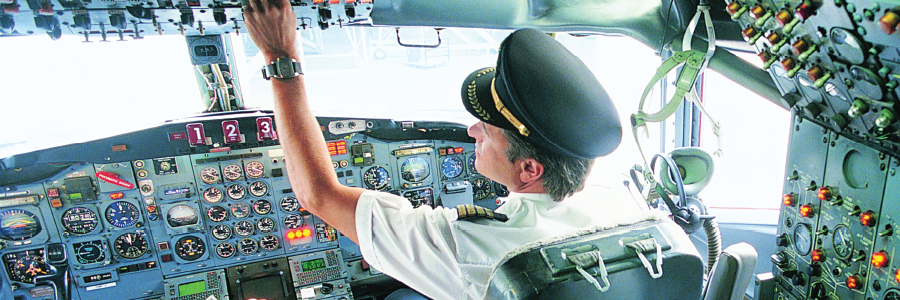Lorne Montgomery began flying when he was 17 years old. In his early 30s, he began working for commercial airlines. And as he neared 50, his scheduled FAA physicals began to show that his vision was declining. Even though he had never worn glasses or had trouble seeing, he just assumed that aging was the culprit and saw an ophthalmologist. But there was nothing wrong with his eyes. A visit to a retina specialist also produced no answers.
After five months—and after being grounded from flying because of his sight—Lorne finally had an MRI that was ordered by his primary care physician. The MRI revealed a large pituitary tumor that had likely been growing aggressively for a couple of years.
Lorne’s tumor was so large, in fact, that it was squeezing against neighboring nerves and blood vessels in his brain, affecting Lorne’s eyesight and threatening his life.
Surgery was the next step, but he was told that his tumor was too large to be removed by the center that was treating him. They quickly referred Lorne to The Pituitary Center at St. Luke’s Health–Baylor St. Luke’s Medical Center, where the tumor was removed—and not a moment too soon.
In the six weeks from the MRI to the surgery, Lorne went legally blind, could only see out of his left eye, lost all peripheral vision and his right eye sight was fading quickly. The tumor was pressing on his brain and putting pressure on his optic nerves and carotid artery, causing loss of concentration, low testosterone and muscle atrophy. Lorne and his family had begun preparing for his death.
“After the MRI, I thought, ‘Great, we know what’s going on and when it’s fixed, I can fly again,’” he said. “But after the tumor started affecting my overall health, flying was the furthest thing from my mind. All I cared about was surviving.”
After experts at the Baylor St. Luke’s Pituitary Center successfully removed the tumor, Lorne spent about three months in recovery until his next FAA physical yielded a clean bill of health. A couple of months later, he was back in the air with better than 20/20 vision.
His six-month follow-up at Baylor St. Luke’s showed zero regrowth of the tumor and no leftover cancerous cells or tissue. Knowing several pilots who were treated elsewhere for a pituitary tumor and were never able to fly again, Lorne was certain that if he had gone anywhere else, his outcome would not have been so positive.




